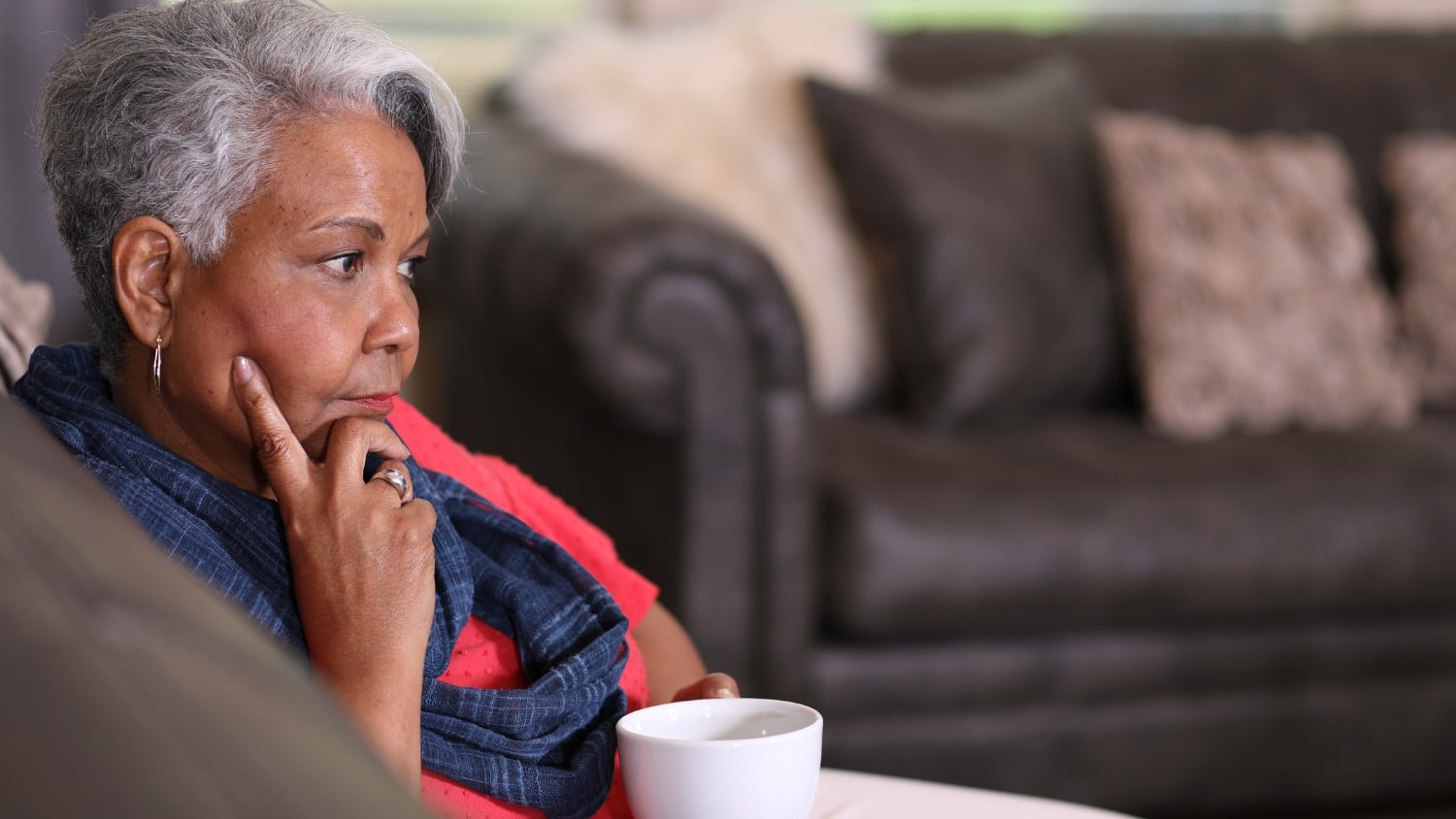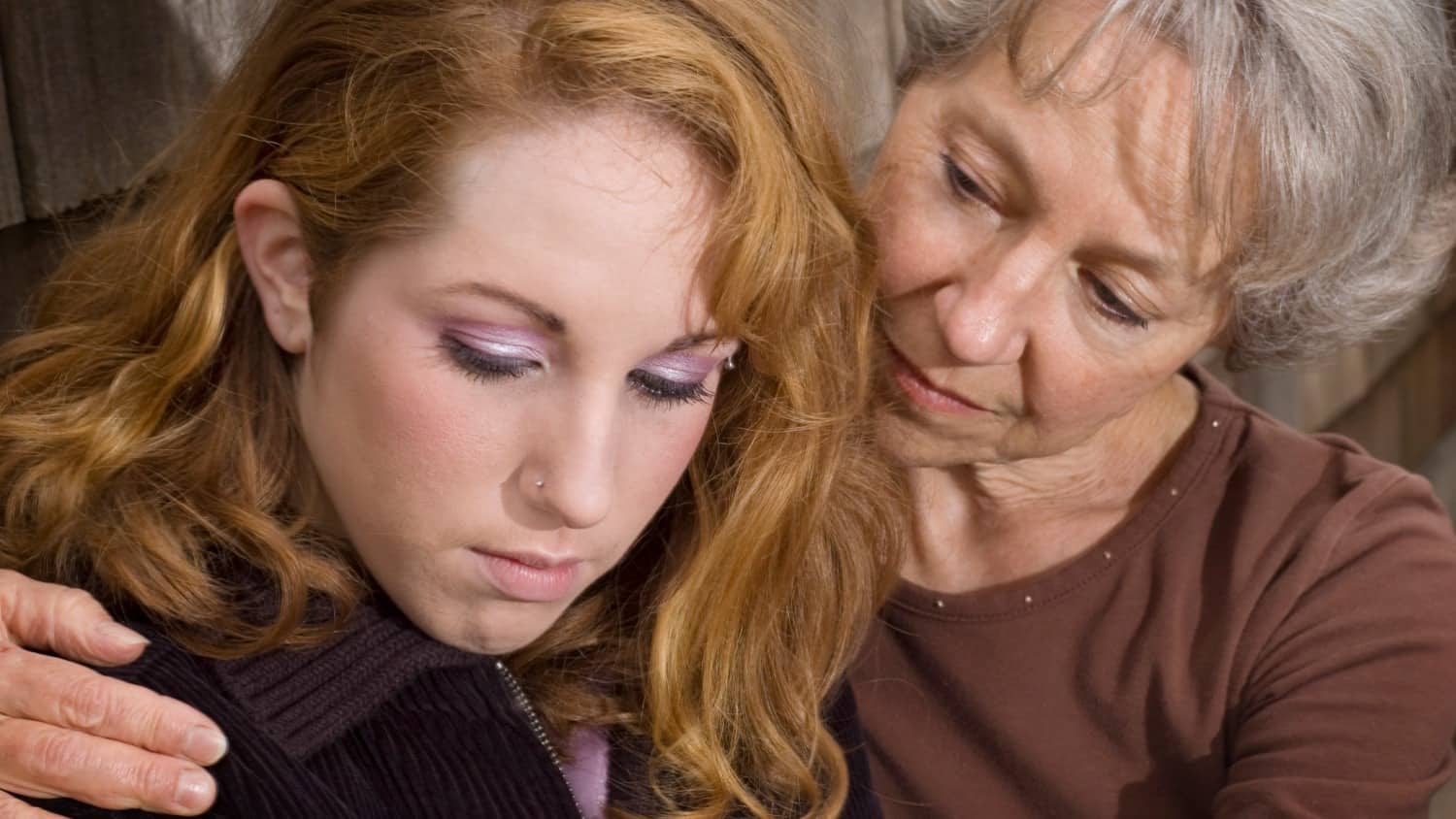
How to Move Past the Wounds of Estrangement and Find Relief
Feeling numb, dumbfounded, angry, and depressed over the angst of being cut off from a family member is expected. Estrangement can occur with adult children, mothers, fathers, siblings, uncles, aunts, grandparents, and grandchildren.
Descriptions include “feeling like I am dead” and “devasted.” What can we do to get our life back?
Estrangement Brings Uncertainty
Research describes the ambiguous and uncertain nature of being cut off from the family. Many focus on how they can arrive at their desired outcome and get things back to where they were before the event shocked their world.
A repaired relationship is an ideal outcome when the circumstances warrant reconciling. In cases of abusive and toxic relationships, individuals estrange out of self-preservation. Reconciling is not recommended unless behaviors have significantly improved.
Estrangement Is Overwhelming
The experience of estrangement harms our emotions and thoughts and is traumatizing. Prolonged immersion in meditating on the traumatic experience can be stressful and overwhelming. Stress is emotionally taxing, but we can devise ways to manage the emotional strain. Let’s add that coping can be productive and detrimental.
Overwhelming is when we lose the ability to cope and cannot function. We respond with feelings of grief and potentially chronic stress. Being cut off is a lot to navigate as humans. It can break us for a while if we aren’t careful. Protecting ourselves must be an intentional posture we cling to.
Being on Both Ends of Estrangement
I am aware of both sides of the estrangement condition. My severed relationship with my sister resulted because being with her was highly unmanageable. People around me were generous with their suggestions and “you shoulds” which only helped me feel more guilt.
Then my son decided to disconnect from his siblings physically and emotionally about five years ago. And later he disconnected from my husband and me. The ache and shock would not subside.
But I needed to continue living; I avoided dealing with the blow.
Avoidance Is Not the Solution
Compartmentalizing pain is a great coping mechanism. It’s akin to putting stuff in the attic for a day you might get to it in the future. Compartmentalizing is a defense mechanism used to avoid and suppress our emotions. Avoiding can be helpful when we are distressed but still need to show up for something important. But in the long run, avoiding prolongs the pain.
It is most helpful when we go back and sort through the box. The stuff I keep in my literal attic is mostly stuff I cannot part with for now. It has meaning and value. I saved some baby blankets in a box only to find they took on that musty smell.
When it comes to our figurative attic or the pain we want to avoid, we only get relief in the short term. Contents in the attic do not just sort themselves. We need to go in there and process. We move past so we can find relief and live despite the blow.
How to Move Past the Wounds of Estrangement
Get Support
The wounds of estrangement require someone to come alongside us and be there to help share and bear the burden. Trained therapists guide someone towards healing.
A supportive therapist and friend will patiently listen as you ventilate and make meaning of what has happened.
They know how to help you feel heard and give nonjudgmental feedback. Therapy is where you can take that box out of the attic as it is, and someone skillfully enables you to process it.
Estrangement support groups will also provide an opportunity not to feel alone and gain insights. Therapy is where we talk about what’s troubling us and our desire to feel less distressed. Early in the estrangement and even lingering, we may experience grief, shock, denial, anger, guilt, and depression. But the shame one feels when their family rejects them keeps estrangement in the shadows. Shame also occurs when someone leaves a relationship.
The human need for connection is so great that when threatened by someone who needs to cut off, it shakes us to our core. Shame, differing from guilt, is feeling something is wrong with us. When we are ashamed to talk about what has happened in our family, it fuels our inability to move past and heal. Brené Brown, author of Daring Greatly, has amplified the necessity to be vulnerable as a pathway to courage.
To move forward and find relief, we need to honestly go into those attic boxes, even the ones that have been there too long, but take someone with us. The trouble with doing the work all alone is that we lose perspective on what has value.
If we have been in the throes of grief and are ashamed, we are likely critical and unloving toward ourselves. We might ruminate about our mistakes and condemn ourselves rather than forgive. Taking responsibility for our part is essential but being wedged in the mire of our shame leaves us stuck.
When someone witnesses these heavier places, they can reflect with an empathetic perspective. That friend, therapist, or group member can remind us that we are more than someone’s sibling, daughter, mother, or father.
You start remembering your strengths and values. Processing emotions and feelings help us build a bridge to who we are and feel more connected. We take the risk, feel heard, and find that connection.
Connection, along with love and belonging (two expressions of connection), is why we are here, and it is what gives purpose and meaning to our lives.
— Brené Brown, Daring Greatly
I know from those who write and speak to me that therapy has helped them to find a path towards healing. One woman was estranged from her daughter after she and her husband decided to divorce. When we first began, she could hardly get through a session without weeping over the loss of her relationship with her husband, daughter, and grandchildren.
Another woman navigated her anger over her two daughters “kicking her to the curb” with her desire to reconcile. The theme of those who have benefitted from therapy relay is empathy, and gentle guidance has helped them to move past the wounds and find relief.
Self- Care
As a therapist and wellness coach, I think self-care is probably one of the most misunderstood essential things humans require. Describing self-care as a practice of caring for oneself is part of the problem. Self-care is an attitude you commit to when you love yourself enough to know you are worth honoring. It’s more about knowing you are worth the effort and time to do what it takes to ensure you are well emotionally, spiritually, relationally, and physically.
As a society, we adore our pets. I will admit that I am guilty of loving my sorely missed little Lola more than myself. She went to her veterinarian appointments, was impeccably groomed, fed well, and adored.
On the other hand, I have avoided the dentist like the plague, forcing myself to listen to that cleaning tool. But besides self-care, such as getting enough sleep, eating nutritious foods, exercising, and drinking enough water, we need to reach into our attitude about ourselves.
Do we make time for social engagements and fun? Are we engaging in downtime that allows our bodies and minds to pause from all the pressures of life? Resurrecting a hobby that pleases us is an excellent place to start. Positive regard for our well-being means we are building a bridge back to ourselves.
Especially when we are dealing with the wounds of estrangement and our focus is on an outcome with someone we can’t control. We can influence how we move past the awfulness and emotional pain of being cut off.
We can join a book club, take a pottery class, do volunteer work, and walk a trail with a friend. When we let accumulated intense feelings out, we begin to soften ourselves. Our self-care attitude is more than a manicure but an appointment with someone you care about. Cultivating self-compassion comes from self-acceptance and treating ourselves as we would a dear friend.
A daily self-care routine will help you build your reservoir to prepare you for the uncertain future. Breathing techniques, prayer, and meditation help us stay calm. Basic self-care is essential and so is having fun.
A spiritual practice helps us stay grounded. Journaling and gratitude practice are excellent mood lifters. The most significant predictor of well-being is gathering with those who love and value you. If it’s not your family, then connect with friends. Above all, it is the attitude that your life matters that will help you move past the wounds and find relief.
Let’s Have a Conversation:
What have you done to move past your wounds of estrangement? What has helped you get unstuck from your estrangement? What self-care practices have been the most helpful as you move forward?
Tags Estrangement







I’ve just today blocked my daughter and her husband from my telephone. Backstory: I noticed at least 5 or 6 years ago that I never heard from my married daughter, except on holidays and her children’s birthdays. (She is the youngest of 3 children). I chocked it up to differentiating from her parents to that of her own family (married mom of 2 young children). 3 years ago, once she had progressed to the point of taking my phone calls or answering texts, for days at a time, I called and asked what was going on. She asked that we should schedule a call in a week–I agreed. (I’m an RN and LMHC, so I was fine with that. The following week she proceeded to tell me 3 things (she didn’t want to hear about: my job, she didn’t want to hear about my weight complaints, and stated that, “Your just not curious.” She didn’t didn’t elaborate on the third. I found this all very insulting, but realized that I did say I was fat all the time. (I’m not fat, I just didn’t look the way I wanted to look.) I could, and did stop talking about both my job and my weight. What I could not understand, what how she would not want a relationship with her dad and I, who truly devoted our lives to all of our children. Evidently my perspective. During the 1st month of Covid, I was going into group homes daily to assess clients that tested positive. We lost 3 of them. Never a call to see how we were doing. My daughter even posted on Facebook one Mother’s Day she wasn’t the kind of parent that was teaching her children to honor their mother on Mother’s Day. (I have always had the philosophy, let us love one another everyday, not strictly on manmade holidays.). Still, I was sickened. Flash about 2 months forward and I asked if we could try to forgive each other and move forward. She agreed, however, she did not actually mean it. She was polite, but did not wish to reestablish a real relationship. The next 3 years have been characterized by regular bullets and barbs directed towards me each time that we’ve seen each other at extended family events. Last Sunday, my granddaughter’s birthday, she directed two particularly mean things toward me. One in front of the entire party. I waited until Monday, requested to speak with her at a convenient time, and then let her know that I was at the bottom. I was not able to take any more such bullets. Truth is, I have suffered with suicidal ideation over this estrangement for the past 3 years, and was letting her know where I was at. I was not trying to be manipulative, I was trying to save my life and spare my family from having to deal with the aftermath of suicide. We have experienced it, and it has devastated us. I was was in tears, told her that I love her with my whole heart, asked her forgiveness for the pain that she has suffered, and asked if we could move forward. Evidently not. The past week has been like being sentenced to hell, and to be honest, I’d prefer to be sentenced there by God, and pay the price, then by her. (I learned that she has not forgiven me for letting one of my sons and his family stay with my husband and I 10 years ago when they moved back from California and were waiting to close on their new home, because “we had a deal” that she and her husband would come over on Wednesday evenings to spend the night while her husband was in school. (They lived 45 minutes away and had beds to sleep in at their own home. From my perspective–Wow. I has been worth it for her to block me and my husband out of her life for 10 years, rather than to ever discuss this with us. I know I’m rambling on. I’m sorry. I asked her to forgive me, and we could forgive one another and proceed with love, like God and Jesus forgive us. But no. I emailed and asked forgiveness. No. Her husband has stated there are still “major gaps” in our understanding. I found out-I lack the enlightenment of Brene Brown. Well, Brene has some lovely ways of putting ancient truths, but her wisdom has not replaced that of God, to me anyway I had to make the decision today to have any chance to move forward. I would rather all of my children have an opportunity to move forward together than to have greater family relationships destroyed by ours. I just couldn’t take it anymore.
Hi Jane:
Thank you for writing. I am genuinely sorry you are going through this with your daughter. It sounds like you have tried to speak to your daughter on multiple occasions, with unfortunate responses.
Sometimes estranged individuals on all sides of the equation must step back and try something different. Have you tried speaking to a therapist to process this challenging situation? When we are so grieved that our mental state is stressed to such a degree of pain, we need someone else to help us navigate our way forward.
Thank you for sharing here. I am sure others can identify with your heartache. I hope you feel better soon, Jane. Warmly, Marie
Hello Marie, this article was very helpful and acknowledged most of the feelings I am experiencing while being estranged from my 3 adult children. I would really like to find and Estrangement Support Group. Do you have any you can recommend?
Hi Eve:
Thank you for writing. I believe there is a group on Facebook. Start there and maybe there are other online sources for you. I wish you well. Warmly, Marie
I have 4 children, and I am estranged from all of them. It started 11
yrs ago with just one, but it quickly grew to all 4. I felt guilt and shame for a long time. I even thought I had lost my mind (like, had a psychotic break or something). My youngest daughter actually wrote an email to my husband saying that “she couldn’t have me be a part of her life any more”. I feel like they all kicked me to the curb because they couldn’t deal with me being grieved about losing my son. They are all loving and supportive to each other. That’s good. They just don’t want me in their lives. The thing that amazes me is that the daughter that emailed my husband actually thought that he would understand and be on her side! I feel absolutely insane. It’s true that mental illness is hereditary and you get it from your kids!
just joined,daughter disowned me..will write more when I get password
just starting. daughter sent me a goodbye text and called me Annette.
in therapy for other issues so thats in place. I like this whole site/.
I am so embarrassed, ashamed and really just wanted to get started
this really is the worst feeling I ever had, I am 72.will try to read what others
say and feel.hopefully relate more, just wanna crawl under a rock
thank you.annette